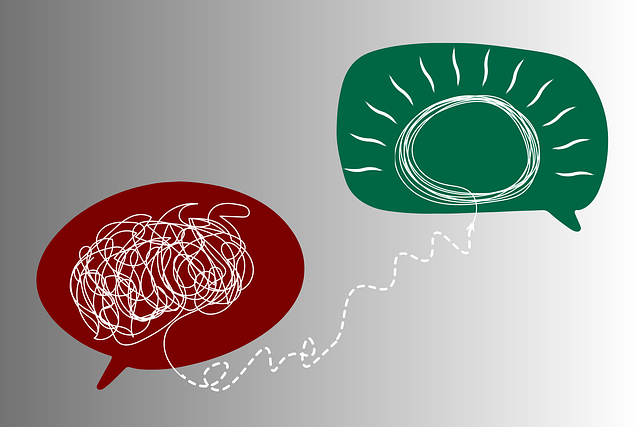Boulder Couples Communication Issues Therapy utilizes the Relationship Freedom Model (RFM) to improve partner communication, build resilience, and enhance well-being. Through self-awareness exercises, stress reduction techniques, journaling, and active listening, therapists guide couples to navigate conflicts constructively, deepen connections, and reduce mental health stigma. The RFM model, focusing on reliability, functioning, and mutual support, strengthens the couple's ability to cope with challenges, fostering empowerment and improved mental awareness in a tailored, adaptable therapy approach.
“Enhance your understanding of Boulder Couples Communication Issues Therapy with a focus on RFM—a powerful framework for relationship resilience. This article guides you through the process of implementing RFM exercises to build resilience in couples counseling sessions. From identifying communication issues to measuring success, we explore practical strategies and insights. Learn how to incorporate RFM effectively, fostering stronger connections and resolving conflicts in therapy. Discover the transformative power of this approach in helping couples navigate challenges.”
- Understanding RFM: A Framework for Relationship Resilience
- Identifying Communication Issues in Couples Therapy
- Building Resilience: Exercises and Strategies
- Incorporating RFM into Couples Counseling Sessions
- Measuring Success and Adjusting the Approach
Understanding RFM: A Framework for Relationship Resilience

Relationship Freedom Model (RFM) offers a powerful framework for cultivating resilience within couples facing communication issues. This therapeutic approach recognizes that building strength in relationships involves addressing inherent patterns and dynamics. By focusing on three key dimensions—Reciprocity, Frequency, and Mood—couples can enhance their connection and overcome challenges. Reciprocal communication, where both partners feel heard and valued, forms the foundation. Frequent positive interactions foster a supportive environment, while managing negative mood states ensures conflicts remain constructive.
Implementing RFM in Boulder Couples Communication Issues Therapy can significantly improve relationship dynamics. Similar to successful public awareness campaigns for mental health issues like depression prevention, this model aims to educate and empower couples. Community outreach programs focused on relationship resilience development further reinforce its benefits. Through tailored exercises, couples learn to navigate conflicts productively, strengthen their bond, and create a resilient foundation for their relationship, thereby enhancing overall well-being.
Identifying Communication Issues in Couples Therapy

In Boulder Couples Communication Issues Therapy, identifying and addressing communication barriers is a cornerstone of fostering resilience. Many relationships face challenges due to accumulated stress and unspoken tensions, hindering open dialogue that’s essential for growth. Therapists play a vital role in helping partners recognize these issues—from defensive patterns to unmet needs—that often go unnoticed amidst the hustle and bustle of daily life.
Effective therapy involves guiding couples through self-awareness exercises designed to uncover underlying emotional triggers. By learning stress reduction methods, such as active listening and constructive confrontation techniques, partners can enhance their communication skills. This process not only strengthens their bond but also fosters mental health awareness, enabling them to navigate challenges with greater empathy and understanding.
Building Resilience: Exercises and Strategies

Building resilience is an essential aspect of maintaining mental wellness and overcoming life’s challenges. Boulder Couples Communication Issues Therapy offers a range of exercises and strategies to help individuals and couples develop coping skills and enhance their ability to navigate through tough times. One effective method is journaling, which provides a safe space for self-reflection and emotional processing. By setting aside time each day to record thoughts and feelings, individuals can gain valuable insights into their emotional patterns and triggers.
Additionally, guidance on communication strategies plays a pivotal role in building resilience. Open and honest dialogue allows individuals to express their needs and fears, fostering deeper connections with others. Through practicing active listening and expressing emotions constructively, couples can improve their relationship dynamics and better support each other during stressful periods. These coping skills development exercises empower individuals to face challenges head-on and cultivate a sense of empowerment and resilience.
Incorporating RFM into Couples Counseling Sessions

Incorporating RFM (Reliability, Functioning, and Mutual Support) into Boulder couples counseling sessions offers a powerful approach to enhancing communication and building resilience. This model encourages partners to identify and strengthen their unique roles within the relationship, fostering an environment where both individuals feel valued and understood. During therapy, counselors can guide couples through exercises that enhance reliability by establishing consistent patterns of support and trust, ensuring each partner feels reliable and dependable.
By focusing on functioning, RFM helps couples improve their problem-solving skills and navigate conflicts more effectively. This involves learning to communicate about needs, boundaries, and expectations without judgment or criticism. Moreover, the mutual support aspect empowers partners to build a strong emotional bond, which is particularly beneficial for reducing the stigma associated with mental illness. Community outreach programs and mental health education can further integrate RFM by teaching these skills in schools and community settings, contributing to broader mental illness stigma reduction efforts.
Measuring Success and Adjusting the Approach

Measuring Success and Adjusting the Approach play a pivotal role in the effective implementation of RFM (Resilience, Flexibility, and Motivation) exercises designed to help couples overcome communication issues in therapy. The initial assessment of progress should go beyond simple metrics; it requires a holistic understanding of the couple’s dynamic interaction patterns, emotional resonance, and individual growth. Therapists should encourage clients to introspect on their Self-Care Routine Development for Better Mental Health and reflect on improvements in self-awareness, emotional regulation, and conflict resolution skills.
Regular feedback sessions enable therapists to gauge the success of the RFM approach in addressing Boulder Couples Communication Issues Therapy. If the exercises seem less effective or if new challenges emerge, it’s crucial to adjust the strategy accordingly. This might involve refining the techniques, introducing complementary Self-Care Practices, or even transitioning to alternative therapeutic methods based on ongoing Mental Health Awareness and client feedback. The key lies in adaptability, ensuring that the approach remains tailored to the unique needs of each couple.
Implementing the RFM framework in Boulder couples communication issues therapy offers a structured approach to building resilience. By focusing on Relationship, Functioning, and Meaning, therapists can help partners strengthen their connection, improve communication, and enhance overall well-being. Through specific exercises and strategies, as discussed in this article, practitioners can effectively incorporate RFM into counseling sessions, measuring success by observing improvements in the couple’s dynamics and satisfaction levels. This method not only empowers couples to navigate challenges but also fosters lasting positive change in their relationships.














